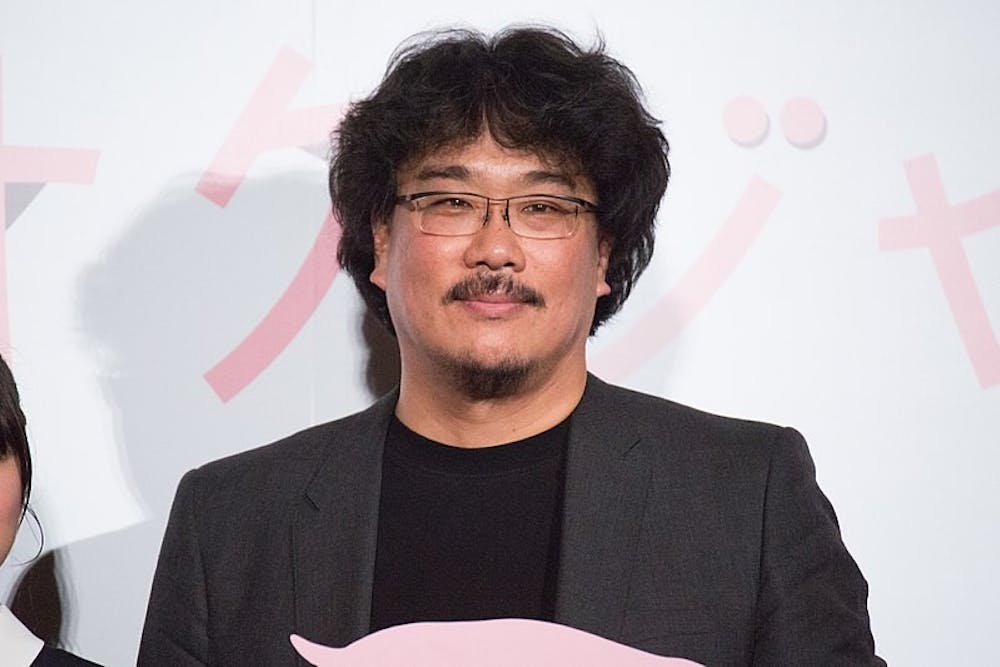Bong Joon-Ho’s Snowpiercer blew my high school mind. The film came to Netflix in late 2014, when the service still felt like somewhat of a novelty. Renting DVDs was still a large part of their model.
Their push into original content was fledgling but promising with House of Cards, and “Netflix and chill?” was a phrase still unironically used by fuckboys everywhere.
Going on a “Netflix dive” was a real activity back when a majority of their catalog consisted of relatively unknown titles with cheap streaming rights as opposed to this seemingly endless slog of mediocre originals we’re trapped in.
Snowpiercer fit in perfectly alongside B-movies like The Exam and Rampage thanks to a director relatively unknown in the west, a dystopian sci-fi setting and Chris Evans rocking a buzz cut.
However one factor differentiated it from its fellow Netflix diamonds in the rough; it was a lot better. Poor CGI shots contrasted with Kyung-pyo Hong’s delicate cinematography, and Joon-Ho’s twist-filled script gave us a film with obvious talent shining through a meager budget — a straight-to-streaming flick with the chops of a true blockbuster.
For 2019’s Parasite, Joon-Ho teamed up with Kyung-pyo once again to put those chops to the test.
High off of Okja, one of Netflix’s first award season darlings, Bong has nothing holding him back this time around.
The film feels similar to Snowpiercer in how it plays with what we expect from a movie in 2019 while pushing these expectations further than we thought imaginable.
It fits in at the box office next to Joker or Midsommar and even plays with contemporary stylistic palettes in surprising ways, while also providing an experience far more satisfying and thought-provoking than its contemporaries. It understands the current media landscape, sees exactly what’s missing and punches right in that spot.
I was told to go into the film knowing nothing. Far too impatient, I pestered my friend to give me the basic premise: “A family is struggling financially. Then the son’s friend gets him a job tutoring someone, and then a bunch of stuff happens.”
If you want to go into the film knowing as much as I did, I recommend you stop reading here (Parasite opens at the Charles Theatre this Thursday). I’m going to try and keep this relatively spoiler free but we’ll see what happens.
My expectations were extremely high going into Parasite, given its Palme d’Or win and sold-out opening weekend at New York City’s IFC Center. I wanted to be left with that odd mix of hollowness and wonder that you get after watching Moonlight or The King’s Speech.
For that reason, I was floored by how fun the first act of the film was.
It struck me after about 45 minutes that I was enjoying it much in the same way I enjoyed most Marvel movies — swept up by sharp dialogue and simply enjoying the plot unfolding on screen.
After a pattern began to reveal itself, I couldn’t stay at ease. What was going to mess this all up?
Bong does a fantastic job of drawing out both the drama and spectacle of the film, heartwarming and witty sequences sharing equal stage time with the grueling and tragic.
And once things take a turn for the latter, they don’t let up.
In this way, the film has two distinct acts: the first lighthearted and mischievous, the second the type of thing that leaves your jaw on the floor and never lets you pick it up.
Kyung-pyo works magic behind the camera, eye-level shots showing us both dirty, sordid streets and the world of the ultra-rich. Much of the film takes place in a home featuring a set of massive glass walls.
The way the camera navigates this barrier between a luxurious backyard and a family den highlights the beautiful yet unsettling nature of both the home setting and the film overall; this navigation takes place as the thin (and often imperceptible) line between humanity and something much darker is cracked open and explored.
Likewise, scenes plunging into claustrophobic hallways give credence to the ensuing chaos through fluid movements of the camera and the close tracking of characters while rich sound editing gives the action maximal impact.
With the way Bong crafts his characters, we’re never entirely certain what to expect. They’re driven, stubborn, at times hedonistic and steeply reserved towards others, always grasping for control in a world that seems to give them so little.
These complex portraits unfold into musings on the capacity for human cruelty — is there any kind of circumstance that can justify man’s terrible actions towards another?
Bong leaves audiences with this question, forgoing resolution to instead leave us with the confusing taste in our mouth of fun and horror mixed, hopeful sentiments feeling strangely perverse and unattainable.
Bong himself has commented on the mixed feelings that this film could elicit in its viewers. In an interview with Yonhap News Agency, he said that these mixed emotions were supposed to charge the film with greater realism.
“Earlier, I said that this movie has laughs, horror and sadness, all in one. These feelings come out as the story continues,” he said. “Throughout the film, I wanted to revive those mixed and realistic feelings.”
Because of this, it can be hard to pin down a genre on Parasite amidst its moments of complex tonal interplay. Regardless, it’s almost certain that films like this are few and far between; Bong Joon-Ho has created not just a masterpiece but one perfectly fitted for our times.





